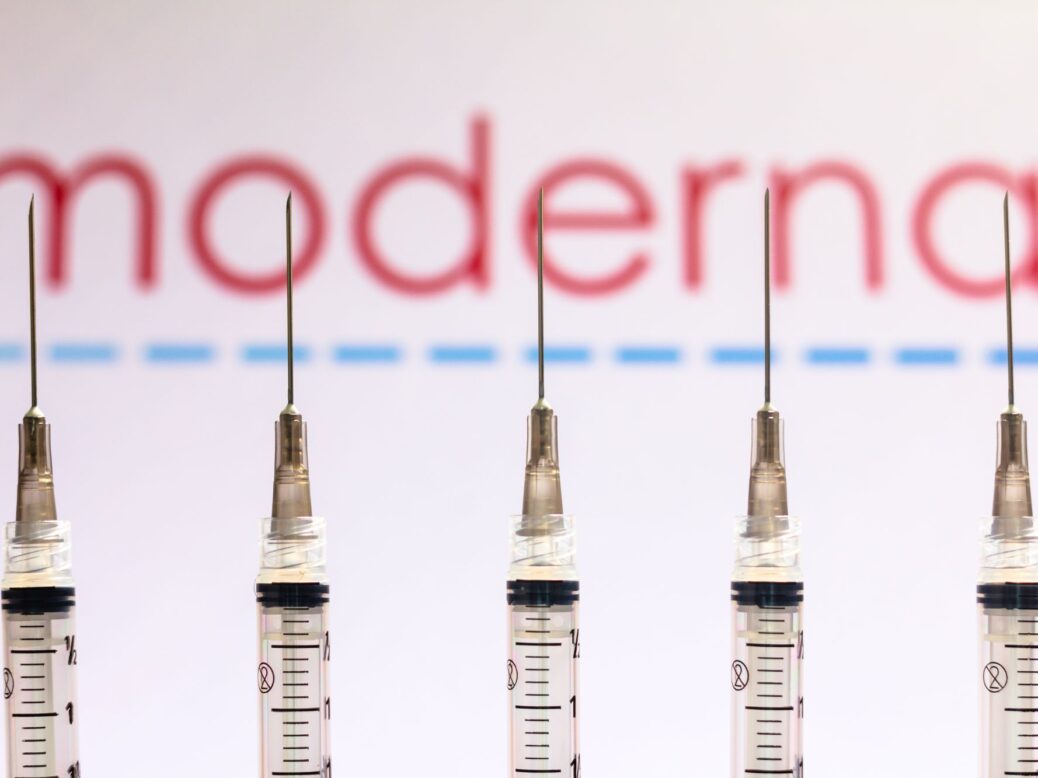
Although the discovery of HIV was forty years ago, developing a vaccine against the virus has remained a difficult task. Moderna, a biotech company, has begun clinical trials on an mRNA vaccine. It employs a unique technique to generate broadly neutralizing HIV-1 antibodies (bNAbs) that will eventually target numerous HIV strains. The experimental Moderna HIV vaccine antigens were administered for the first time this week at George Washington University School of Medicine and Health Sciences in Washington, DC.
Technology

The vaccine is based on the same technology as the COVID-19 vaccine from Moderna. It employs mRNA or messenger RNA. They instruct the body’s cells on how to produce proteins that activate the immune system.
BNAbs take form by a specific form of B cell that is extremely rare. It is just one in every 300,000 B cells that have this potential. The vaccination attempts to boost the creation of bnAbs, which can fight a variety of HIV strains.
Scientific teams from the non-profit International AIDS Vaccine Initiative (IAVI) and Scripps Research produced the immunogens undergoing testing. Then, via Moderna’s mRNA technology, they delivered it.
“While the proof-of-principle study was encouraging, it used a protein with an adjuvant to induce a response that was as was hoped — capable of neutralizing and preventing infection with neutralization of susceptible HIV strains. It did not use mRNA. But there is no reason to suppose that the mRNA that has been designed will not lead to the production of the expected protein and broadly neutralizing antibodies,” leading virologist Dr. Gagandeep Kang said.
Trials
The MODERNA/IAVI research is in phase 1. It is a random, first-in-human, open-label trial to assess the safety and immunogenicity of the mRNA-1644 and mRNA-1644v2-Core vaccines in HIV-uninfected people. Fifty-six people will be in four random groups. Safety and immunogenicity results will be available in 2023.
Burden of disease
HIV continues to be a major global public health issue, according to the World Health Organization (WHO). It has claimed the lives of 36.3 million people thus far. Around 21 lakh people in India have HIV, with an estimated 68,000 new infections occurring each year. While there is no cure for HIV, increased access to excellent prevention, diagnosis, medication, and care, including for opportunistic infections, has transformed the disease into a manageable chronic health condition. Despite decades of research, however, no vaccine is available.
Moderna HIV vaccine Challenge
According to Dr. Sanjay Pujari, an infectious diseases consultant who works closely with HIV patients, several vaccine candidates have entered clinical trials but have failed. One of the difficulties was determining the immune protection correlations. Previous HIV vaccination trials revealed that the antibodies produced were either useless or just partially efficient. Thereby, contributing to the trials’ failure.
Over the last decade, studies narrowed down on bNAbs that are more potent than reactive antibodies produced after HIV infection. “These bNAbs can overcome the genetic variability of HIV by targeting the conserved regions of the envelope protein – can penetrate the `glycan shield’ that HIV uses to shield its envelope protein,” Dr. Pujari said.
In naturally acquired HIV infection, only a small proportion of individuals produces bNAbs. By that time, it is quite late to have any impact on the natural course of HIV infection. So, the key is to use it as treatment (early on during acute HIV infection) or prevention. The closest positive effectiveness was in the THAI (RV144) trial i.e. around 30%. Recently, Johnson & Johnson’s vector platform vaccine trial in South Africa (Imbokodo) had to stop due to disappointing results. Hence an mRNA platform to deliver immunogens capable of inducing bNAbs is a promising technology that needs all types of exploration in trials.
Moderna HIV vaccine is still in early days
The results of this phase 1 study will determine the platform’s future for HIV vaccine development. “This is a start and we do not know how it will go. But we hope that using good science will move us further along,” Dr. Kang said.
